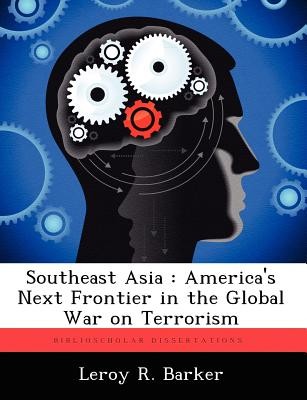
- We will send in 10–14 business days.
- Author: Leroy R Barker
- Publisher: BiblioScholar
- ISBN-10: 1249411904
- ISBN-13: 9781249411901
- Format: 18.9 x 24.6 x 0.5 cm, softcover
- Language: English
- SAVE -10% with code: EXTRA
Reviews
Description
America's strategy to combat terrorism, resulting from Al-Qaeda's 2001 attacks, falls short of its intent to defeat transnational terrorism. While the tenets of the current counterterrorism strategy were written broadly to enable global employment, this template approach proved ineffective. While focusing its efforts on dismantling terrorist organizations in Afghanistan and Iraq, America neglected parts in Southeast Asia that provided sanctuary to Islamic terrorists. Such sanctuaries facilitated the regrouping, recruiting, and training of Al-Qaeda operatives to conduct subsequent attacks against America and its allies throughout the world. The central research question is: What strategy can the US employ to eliminate Al-Qaeda's influence throughout the Southeast Asian countries of Indonesia, Malaysia, and the Philippines? Recommended strategy changes were generated from applying a three-step analysis approach. First, analyzing the adversary established a foundation from which to develop recommendations to counter Al-Qaedas operations. Second, analyzing three Southeast Asian governments' responses to terrorist threats within their country assisted in the formulation of a counterterror strategy for the region. Finally, the analysis of the current counterterror strategy resulted in recommended adjustments to each of America's instruments of national power--diplomatic, informational, military, and economic--to facilitate elimination of Al-Qaeda's influence in Southeast Asia. The opinions and conclusions expressed herein are those of the student author and do not necessarily represent the views of the US Army Command and General Staff College or any other governmental agency.
EXTRA 10 % discount with code: EXTRA
The promotion ends in 16d.12:02:06
The discount code is valid when purchasing from 10 €. Discounts do not stack.
- Author: Leroy R Barker
- Publisher: BiblioScholar
- ISBN-10: 1249411904
- ISBN-13: 9781249411901
- Format: 18.9 x 24.6 x 0.5 cm, softcover
- Language: English English
America's strategy to combat terrorism, resulting from Al-Qaeda's 2001 attacks, falls short of its intent to defeat transnational terrorism. While the tenets of the current counterterrorism strategy were written broadly to enable global employment, this template approach proved ineffective. While focusing its efforts on dismantling terrorist organizations in Afghanistan and Iraq, America neglected parts in Southeast Asia that provided sanctuary to Islamic terrorists. Such sanctuaries facilitated the regrouping, recruiting, and training of Al-Qaeda operatives to conduct subsequent attacks against America and its allies throughout the world. The central research question is: What strategy can the US employ to eliminate Al-Qaeda's influence throughout the Southeast Asian countries of Indonesia, Malaysia, and the Philippines? Recommended strategy changes were generated from applying a three-step analysis approach. First, analyzing the adversary established a foundation from which to develop recommendations to counter Al-Qaedas operations. Second, analyzing three Southeast Asian governments' responses to terrorist threats within their country assisted in the formulation of a counterterror strategy for the region. Finally, the analysis of the current counterterror strategy resulted in recommended adjustments to each of America's instruments of national power--diplomatic, informational, military, and economic--to facilitate elimination of Al-Qaeda's influence in Southeast Asia. The opinions and conclusions expressed herein are those of the student author and do not necessarily represent the views of the US Army Command and General Staff College or any other governmental agency.


Reviews